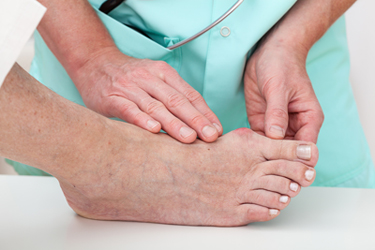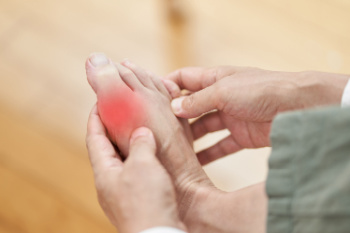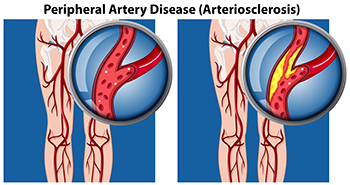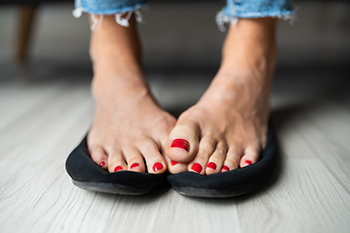
Bunions, medically known as hallux valgus, are a foot deformity that affects the joint at the base of the big toe. This condition occurs when the bone or tissue at the joint shifts out of place, causing the big toe to lean inward toward the other toes. The anatomy of a bunion involves the misalignment of the metatarsophalangeal, known as the MTP, joint that leads to a bony bump on the side of the foot and the deviation of the big toe. Several factors contribute to the development of bunions, including genetics, improper footwear, and structural foot abnormalities. Individuals with a family history of bunions are more predisposed to developing them, as are those who frequently wear tight or narrow shoes that squeeze the toes together. Additionally, conditions, such as flat feet or low arches, can increase the risk of bunions by placing excessive pressure on the MTP joint. Understanding the anatomy and causes of bunions is helpful for effective prevention and treatment strategies. If you have a bunion, it is suggested that you consult a podiatrist who can offer you effective management techniques.
If you are suffering from bunions, contact one of our podiatrists of Carolina Foot & Ankle Specialists. Our doctors can provide the care you need to keep you pain-free and on your feet.
What Is a Bunion?
A bunion is formed of swollen tissue or an enlargement of boney growth, usually located at the base joint of the toe that connects to the foot. The swelling occurs due to the bones in the big toe shifting inward, which impacts the other toes of the foot. This causes the area around the base of the big toe to become inflamed and painful.
Why Do Bunions Form?
Genetics – Susceptibility to bunions are often hereditary
Stress on the feet – Poorly fitted and uncomfortable footwear that places stress on feet, such as heels, can worsen existing bunions
How Are Bunions Diagnosed?
Doctors often perform two tests – blood tests and x-rays – when trying to diagnose bunions, especially in the early stages of development. Blood tests help determine if the foot pain is being caused by something else, such as arthritis, while x-rays provide a clear picture of your bone structure to your doctor.
How Are Bunions Treated?
- Refrain from wearing heels or similar shoes that cause discomfort
- Select wider shoes that can provide more comfort and reduce pain
- Anti-inflammatory and pain management drugs
- Orthotics or foot inserts
- Surgery
If you have any questions, please feel free to contact our offices located in Mount Pleasant and Charleston, SC . We offer the newest diagnostic and treatment technologies for all your foot care needs.







